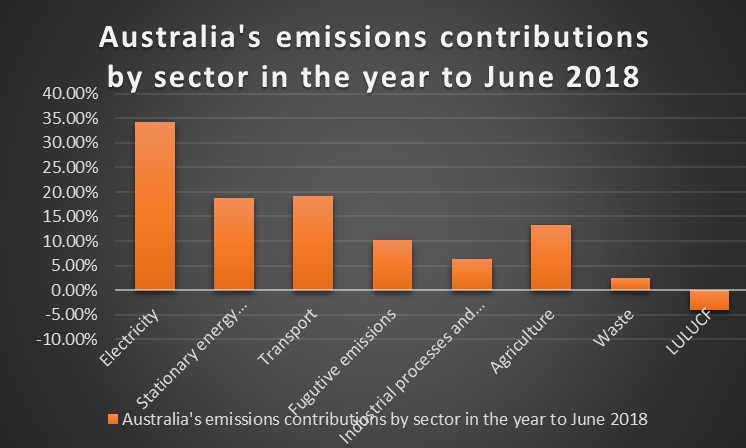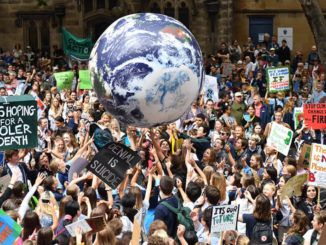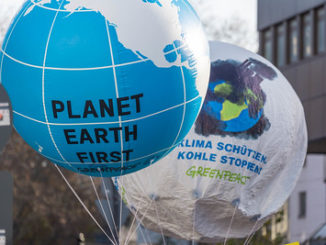
The Greta Thunberg-led global climate strike last Friday was the most recent in a series of protests part of the Swedish teenager’s ‘School Strike for Climate’ campaign for immediate climate action.
The strike, involving over 100 countries and estimating over 1.4 million participants, was another stark reminder of the urgency of the issue and mounting pressures against government inaction throughout the world. Spanning over 1664 cities, the movement saw over 5000 people protesting in Melbourne’s CBD and thousands marching in Sydney.
In the wake of what was meant to be Australia’s #ClimateElection, it’s clear that climate change remains a contentious and important issue for many Australians. But with China’s ban on foreign waste in 2017 and the Coalition’s unsatisfactory $3.5bn climate solutions package set to stay, the burden of steering Australia towards a sustainable future seems to fall with ordinary citizens.
The push from government and business for consumers to take matters into their own hands has been increasing for years. Australians have been urged to reduce their carbon footprint and change their lifestyles by cycling to work or school, using public transport, recycling, and prioritising energy-efficiency by installing solar systems.
With the sustainability movement finding its way into nearly all aspects of everyday life, it’s clear that the conversation around climate change won’t be over for a while. But with Australia set to miss its 2030 emissions target of 26 to 28 per cent, small-scale efforts towards sustainability can seem futile in the face of inevitable disaster, especially with ongoing political inaction.
So does the sustainability movement need to widen its focus to shift public attitudes on climate change? What more can we be doing to promote institutional transformation on a broader scale?
A MAINSTREAM MOVEMENT
Focusing mainly on micro-level, everyday changes to individual or family practices, one needs to look no further than the surge in waste-, plastic-, and meat-free movements occurring nationally, bolstered by popular bloggers and Instagrammers pushing for a sustainable lifestyle to get a feel for the movement.
Nationwide awareness of the threat of climate change has prompted a wealth of documentaries and programmes aimed at educating and offering solutions on climate change. The popular ABC documentary series War on Waste, for example, educates citizens on Australia’s waste crisis and encourages schools, businesses, and households to join the waste-free movement. Now, everywhere eco-friendlier alternatives to plastic packaging and unnecessary waste can be found, from the ubiquitous reusable coffee cup to food wrap made from beeswax.
Meat Free Mondays are a popular, easy way to temper the damaging effects of the agriculture industry; even the co-founder of meat wholesaler Vic’s Meat urged Australians to eat less meat and be aware of the impact diet can have on the environment.
Not just for the greenies of the Inner West or the eco-conscious Bondi crowd, mainstream moves towards sustainability have recently been implemented under pressure from consumers. Supermarket giants Coles and Woolworths banned single-use plastic bags in 2018, and Woolworths in particular has responded to calls for plastic-free packaging, removing plastic completely or switching to recyclable materials used with meat trays, milk cartons, and some fruits and vegetables.
THE WAY FORWARD
It’s not to say these small-scale efforts haven’t had a positive impact on our carbon footprint. The plastic bag ban now commonplace across the nation has reduced consumption by over 80 per cent, with 1.5 billion bags avoiding landfill since last July, and rooftop solar installation soared by 28 per cent in 2018 alone.
But to make a significant impact on institutions, the answer could lie not in diligently remembering our KeepCups on the bus-ride to work, but in building sustainable communities and rethinking our long-term economic decisions.
Professor of Biology at Macquarie University and member of Australia’s Climate Council Lesley Hughes says local governments are stepping up in a “vacuum of [federal] leadership”, and that change often occurs in smaller communities and towns.
The idea is that if small communities adopt sustainable practices at a collective level then through normalising these practices their influence can spread. Forging relationships centred around sustainability with local businesses can aid in this process, as one local Adelaide resident proved in her hometown.
Similarly with a growing carbon footprint, where Australian households are responsible for 12 per cent of emissions, smaller cities and towns are leading the way with renewable energy as seen in the Climate Council’s report on local climate change progress.

THE PROBLEM OF ACCESSIBILITY
As a movement fuelled largely by social media influencers and environmentally conscious communities like those in Sydney’s Eastern suburbs, obstacles to successfully adopting an eco-friendlier lifestyle can be socioeconomic as much as anything else.
Add that to the gendered politics of the zero-waste movement and doing one’s bit for the planet can seem overwhelming.
Ms Hughes says even if physical or psychological obstacles prevent one from adopting a sustainable lifestyle, educating the public on climate change and the possibility of sustainable choices is key.
“Even with the best will in the world, you need alternatives,” she said.
For Ms Hughes, it’s about “assuring people that what they do counts, and what they do as communities counts”.
Ms Hughes notes that “many people are looking to their own carbon footprints, partly in frustration, partly in contribution”, in the absence of government action on the issue.
“Individual action is really important because collectively we are the population…That doesn’t mean that [the] government don’t have enormous responsibility.”
PUTTING YOUR MONEY WHERE THE COAL IS
Taking the focus of environmental activism away from the streets and farmers’ markets and into our long-term financial decisions is key, according to Macquarie University’s climate change researcher Stuart Browning.
For Browning, individual activities like those seen throughout glossy Instagram pages awash with macramé and reusable straws are “almost irrelevant…if your super is invested in the Adani coal mine.”
When it comes to affecting change on a larger scale, “investors have huge power,” according to Mr Browning.
He asserts that with “no effective [government] policy to reduce carbon emissions”, Australians need to take a look at where their money is invested to have the greatest impact on emissions and the future of renewable energy.
“It would be nice if we had a government that was leading [on climate change].
“I don’t think it’s really necessary.”
With both the government and big corporations largely ignoring public fervour on the issue, it’s clear that persistent, collective action within our local communities and large-scale economic choices is the way forward.
Yet it’s hard to imagine Australia’s eco-conscious backing down from pressing the federal government on climate change. From hundreds gathering in Adelaide to protest oil drilling in the Great Australian Bight earlier this month, to the string of rallies staged in opposition to Adani’s coal mine, pressures only seem to be growing.
“The government simply isn’t serious about [climate change],” said Ms Hughes.
“If we don’t protest, if nobody says anything […] Without hope you just give up.”
One thing remains certain: Whether it’s through long-term financial investment, remembering to bring the shopping bags, or taking to the streets – there’s a long road ahead in the transition to a sustainable future.





Be the first to comment